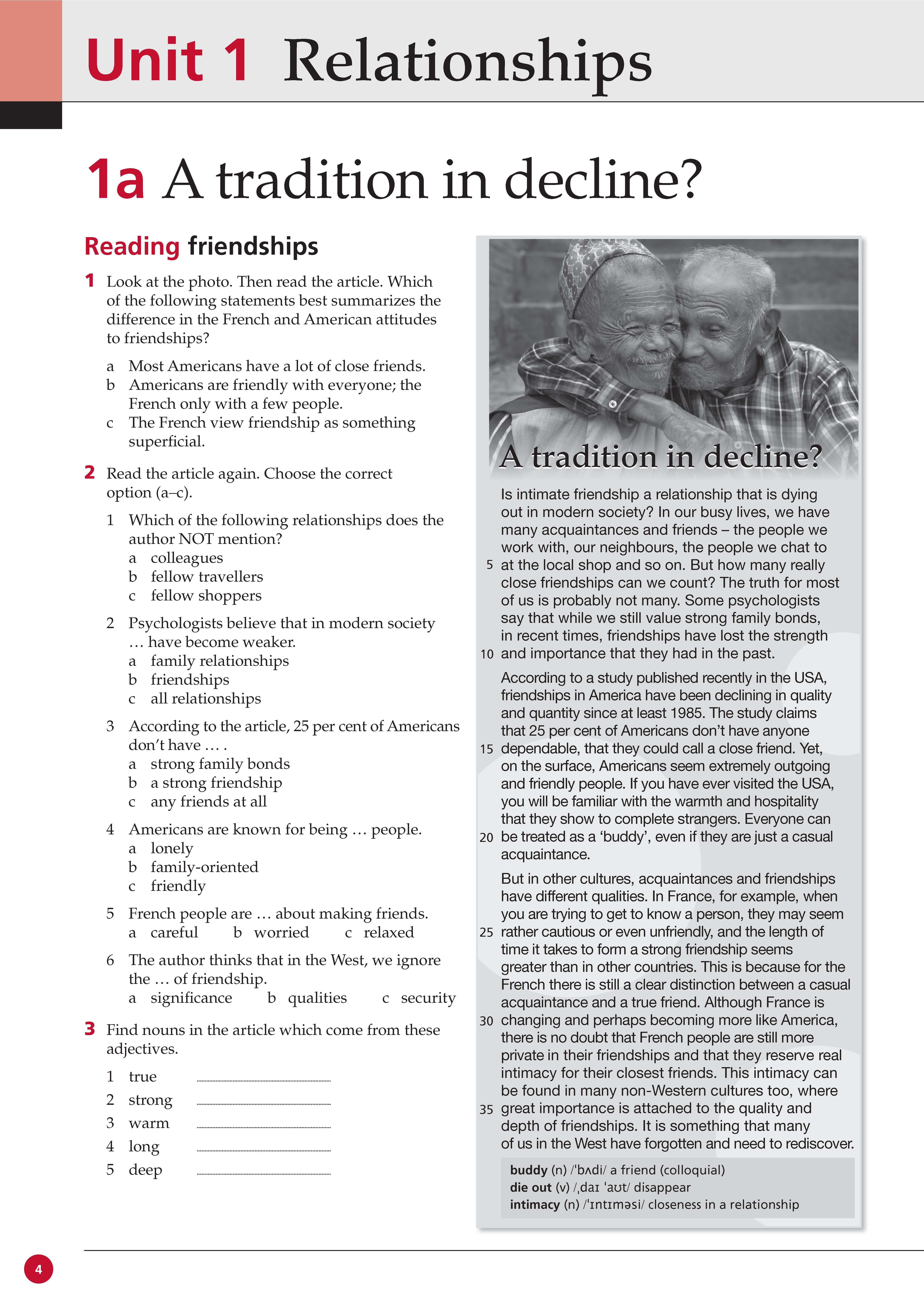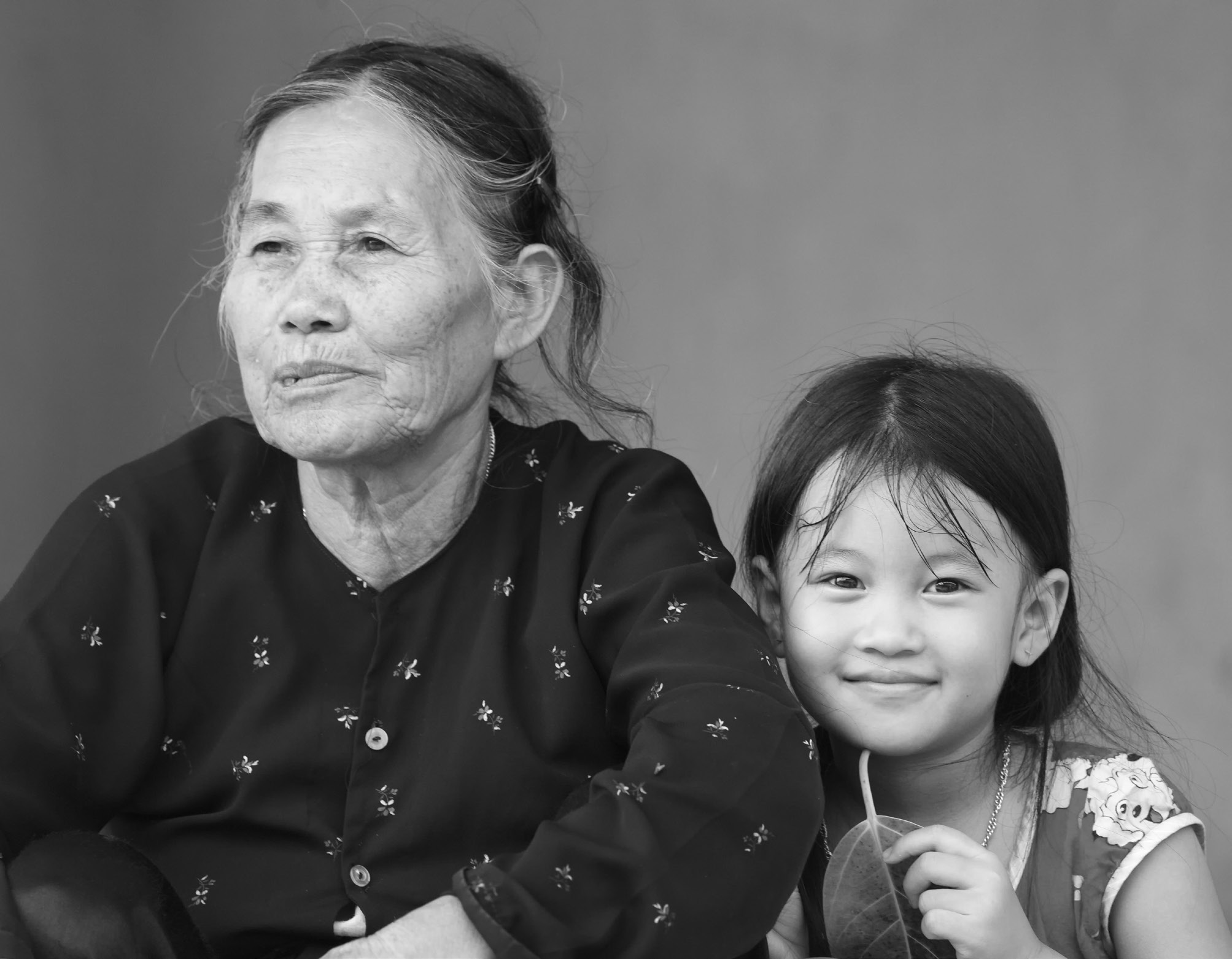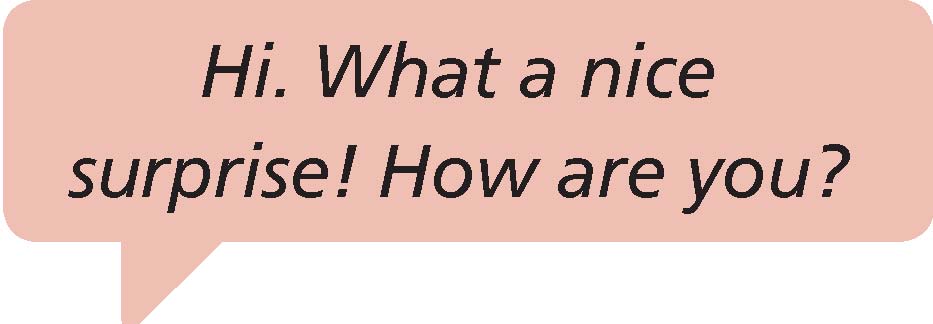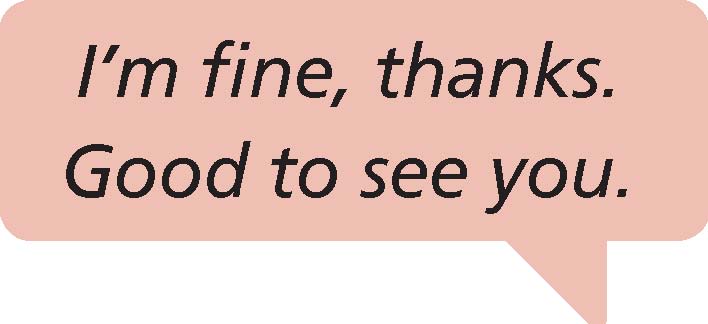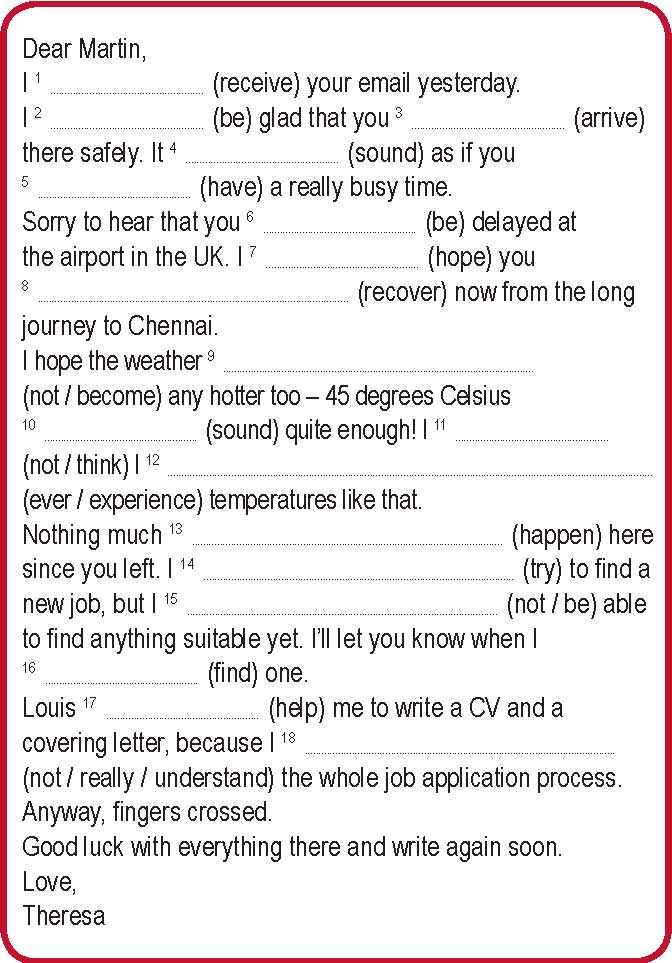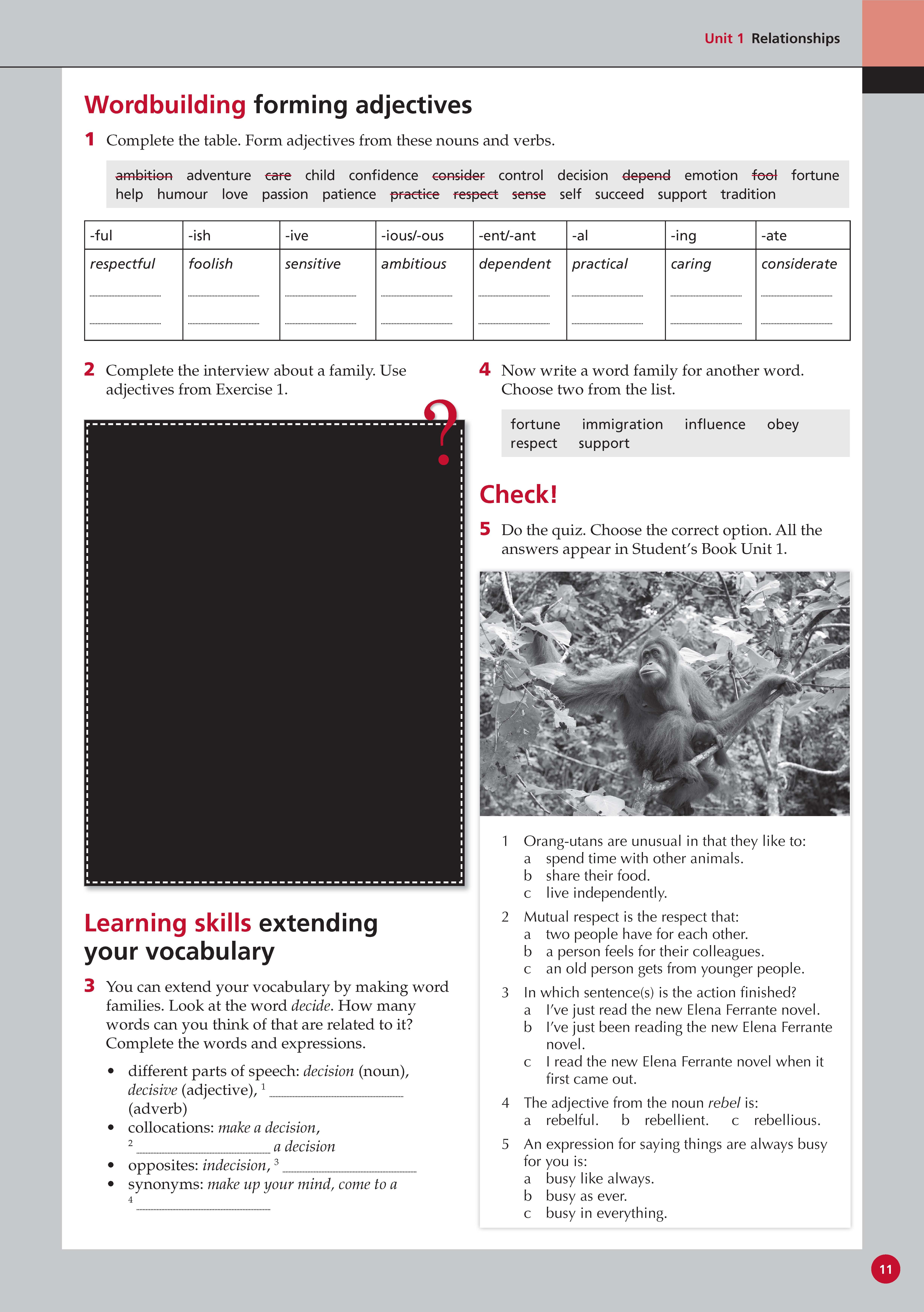Vocabulary friendships, describing character and phrasal verbs
6 Look at the article again. Find the adjectives that collocate with these words. You may use the adjectives more than once.
| 1 | a(n) | , | , |
| friendship | |||
| 2 | a | bond | |
| 3 | a | , | friend |
| 4 | a | stranger | |
| 5 | a | acquaintance |
7 Which word in each group does NOT collocate with the single word next to it? Cross out the word. 1 (a) mutual friend/respect/student/interest 2 a fellow student/companion/scientist/traveller 3 a close acquaintance/relationship/friend/relative 4a flat/faithful/travel companion 5 a(n) odd/happy/blood couple 6 a(n) close/old/passing friend
8 Complete the sentences using the most appropriate adjective. There are two extra adjectives.
considerate dependable energetic good fun laid-back
outgoing selfish serious shy unreliable
1 He seems very serious
on the surface, but actually he’s really
when you get to know him. 2 She’s not stressed about arrangements for the wedding. She’s very about it all. 3 I do like him, but he’s so
. He always forgets arrangements or cancels them at the last minute.
4 She’s so . I don’t know how she manages to do a full-time job, look after three children and write books at the same time.
5 How could two people be so different? His brother is very
– he never says a word, but Simon is the opposite – very and loves to be the centre of attention.
6 She’s such a person. She not only bought a thank you present for us, she got presents for all the children too.
9 Choose the correct option to complete the phrasal verbs.
1 I used to hang out with / around John a lot at college because we were both keen swimmers. 2 I’m meeting with / up with a group of colleagues on Friday. Would you like to join us? 3 I don’t get off / on very well with my new boss. He’s really difficult to work with. 4 Do you want to come across / round to my house and watch the football? It starts at 8 p.m. 5 It’s very important to stand by / with your friends when they are in trouble.
6 Some people are very good at keeping up with / on with their old friends. However, I’ve lost touch with practically all the people I knew at college.
7 Lina and I were friends at school, but when we met recently, we just seemed to pick off / up from where we left off twenty years ago.
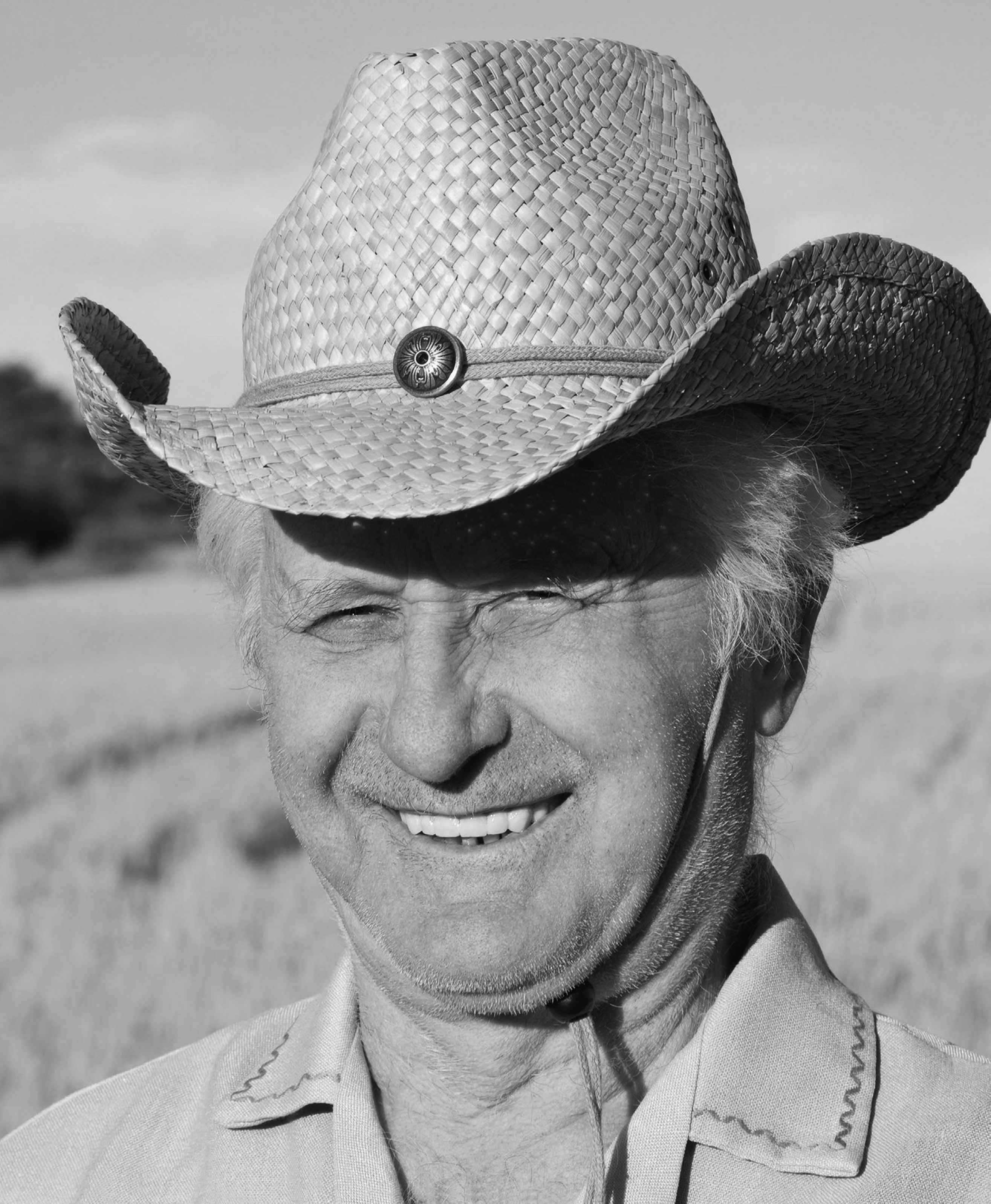
6
Unit 1 Relationships
4 Choose the best option to complete the sentences.
1 It’s not just in Britain that people are retiring later. A lot of countries raised / have raised the retirement age. This wasn’t / hasn’t been very popular, as you can imagine.
2 In other countries, like France and Japan, the government encouraged / has been encouraging people to have more children. For example, in France, they have reduced / have been reducing people’s tax if they have more than two children.
3 Some people say that advances in medicine went / have gone too far. They say that it was / has been better when people didn’t live so long.
4 Old people seem younger now. My grandmother had / has had her seventieth birthday a few weeks ago, but she looks about sixty. She has gone / has been going to yoga classes lately too!
5 Emma looked / has been looking after her elderly parents for the last year. She had / has had to take a lot of time off work to be with them.
5 Complete the sentences with an appropriate time expression.
all morning last year before since the age of sixteen in the past so far just yet
1 They moved to Canada to live on a farm. 2 Where have you been ? I need your help moving some furniture.
3 Have you had your lunch ? I’m just going out to get a sandwich. Would you like to come?
4 Have we met ? I’m sure I recognize your face. 5 I’ve been driving . 6 Life was a lot simpler
, before we had a house and children.
7 I’m painting the house. I’ve painted three rooms . Just two more rooms to go.
8 Zoe? She’s not here right now. She’s gone out to get a coffee and some lunch.
6 Pronunciation auxiliary verbs have and has
a Read the conversations. Underline the auxiliary verbs have and has that you think are stressed. Circle the auxiliary verbs that are not stressed.
1 A: Have you finished using the computer yet? I need to check my emails.
B: Yes, I have. But the internet connection has been a bit funny.
A: What do you mean? Haven’t you been able to connect or has it just been slow?
2 A: How has your visit to Scotland been? Have you had a good time?
B: Well, the weather has been terrible, but apart from that, it’s been wonderful.
A No, it hasn’t been a very nice summer, but I’m afraid that’s pretty typical.
b
![]() 2
Listen and check your answers to Exercise 6a.
2
Listen and check your answers to Exercise 6a.
7 Dictation old and young
![]() 3
Look at the photo. The person is describing her family. Listen and write
what she says. What is she looking forward to when she is older?
3
Look at the photo. The person is describing her family. Listen and write
what she says. What is she looking forward to when she is older?

1 I think my parents’ generation 2 My parents , but they both . So now they can relax and enjoy themselves. 3 They’ve said and that they don’t 4 Considering that my husband and I
